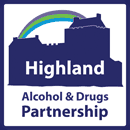Public Health breakthrough on Minimum Unit Pricing
Posted on
Scotland is the first country in the world to introduce minimum unit pricing for alcohol, with the UK Supreme Court rejecting a 5 year challenge by the Scotch Whisky Association (SWA).
In the first year alone, a 50p minimum unit price will prevent an estimated 60 alcohol-related deaths, 1,600 hospital admissions and 3,500 crimes.
Minimum pricing is Scotland’s biggest public health breakthrough since the ban on smoking in public places. The Scottish Government are to be applauded for determinedly seeing it through in the face of global spirits producers’ attempts to deter action and delay implementation
The Supreme Court judges ruled the measure was a "proportionate means of achieving a legitimate aim". The Scottish Government have argued that a 50p-per-unit minimum would help tackle Scotland's "unhealthy relationship with drink" by raising the price of cheap, high-strength alcohol.
The approach is effective because it targets excessive drinking and associated harm. The price of a pint in the pub won’t change but the price of strong white ciders and own brand spirits will rise markedly.
The move is not a tax or duty increase. It is a price increase for the cheapest drink, with any extra cash going to the retailer. The 50p-per-unit minimum outlined by the legislation would raise the price of the cheapest bottle of red wine (9.4 units of alcohol) to £4.70, a four-pack of 500ml cans of 4% lager would cost at least £4 and a 70cl bottle of whisky could not be sold for less than £14.
In Highland, over 51,000 adults are estimated to exceed the recommended low risk alcohol guidelines of 14 units per week for both men and women. Even small reductions in consumption can have big health benefits and help prevent alcohol problems harming individuals, their families and the communities in which they live.
The Director of Public Health Hugo van Woerden said ‘I am delighted to hear this ruling and this is an important breakthrough in improving the health of the population and will save lives’.
Elisabeth Smart, Consultant in Public Health, said ‘this is a historic day for Scotland and will have a positive impact on futures generations of children and families’.
